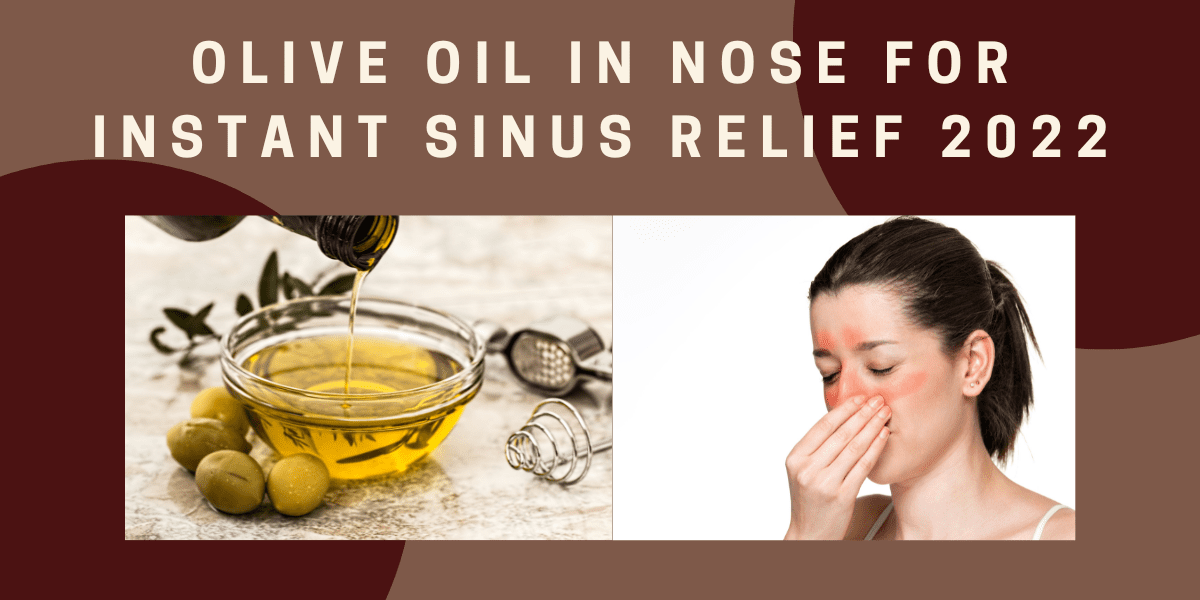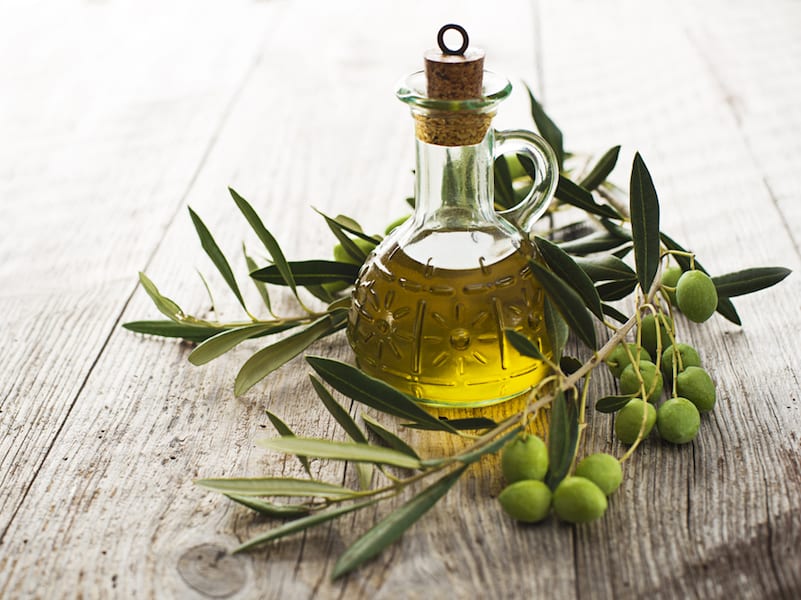
It may sound strange, but putting olive oil in your nose can be beneficial! This home remedy has been used for centuries to treat various ailments, and recent studies have shown that it can be particularly effective in treating sinus problems. Let’s take a closer look at how this simple remedy can help clear your sinuses and improve your overall health.
How Olive Oil Works
Olive oil works by trapping bacteria and other irritants in the nose, which prevents them from causing inflammation and infection. This is because olive oil is a natural antimicrobial that kills bacteria and other microorganisms. In addition, olive oil lubricates the tissues in the nose, which helps to reduce irritation and inflammation.
The health benefits of olive oil are well-known; it is a staple of the Mediterranean diet and has been shown to reduce the risk of heart disease, stroke, cancer, and other chronic conditions. However, olive oil also has several benefits for the respiratory system. One study showed that olive oil was just as effective as a saline solution in treating rhinitis, or inflammation of the lining of the nose.

How to Use Olive Oil for Sinus Relief
Now that we know a little bit more about how olive oil can help relieve sinus problems let’s look at how to use it. First, warm up ½ cup of olive oil until it is warm to the touch. Next, tilt your head and carefully pour the olive oil into one nostril, flowing through your nose and out the other nostril. You may want to use a tissue to catch any drips. Repeat this process with your other nostril.
You can do this once or twice a day as needed for relief. For best results, use organic extra-virgin olive oil; this type of olive oil has the highest concentration of antimicrobial compounds. If you don’t have extra-virgin olive oil on hand, you can also use virgin olive oil or plain old cooking oil; these types will work fine, though they may not be as effective as extra-virgin olive oil.

Olive oil for dry nose
A dry nose can be a bothersome problem, especially during the colder months. Fortunately, you can do a few things to mitigate the discomfort. One home remedy is to use olive oil for a dry nose. Let’s take a closer look at how this works.

The Science Behind It
Olive oil is thicker than most other oils, which makes it ideal for addressing a dry nose. Like vaseline, olive oil creates a barrier on the skin’s surface that helps to lock in moisture. This can be helpful if your dryness is caused by seasonal changes or exposure to harsh elements like wind or sun.
Our noses are lined with tiny blood vessels responsible for heating and humidifying the air we breathe. When these vessels become inflamed, they can cause the tissue in the nose to swell and block the airways. This condition, known as rhinitis, is often caused by allergies or respiratory infections. In addition to causing congestion, rhinitis can lead to a dry nose.
Olive oil has anti-inflammatory properties that can help to soothe inflamed blood vessels and reduce congestion. This, in turn, can provide relief from a dry nose.

How to Use It
There are a few different ways you can use olive oil for a dry nose:
1) Apply a small amount of olive oil to a cotton ball and gently swipe it across the inside of your nostrils.
2) Combine equal parts olive oil and water in a small bowl. Use a clean dropper to apply the mixture to your nostrils.
3) Add a few drops of olive oil to your humidifier before you turn it on. The mist will help to moisten your nasal passages and ease congestion.
4) Combine equal parts olive oil, honey, and lemon juice in a small bowl. Place the mixture in a clean dropper and use it to apply lubrication inside your nostrils throughout the day as needed.

Olive oil for nose block
If you’re struggling with a nose block, you might be wondering if any home remedies can help clear it up. And lucky for you, there is! Olive oil has long been a natural remedy for various conditions and can help clear up a nose block.

How to Use Olive Oil for Nose Blockage
First, start by heating some olive oil until it’s warm but not hot. Then, apply the olive oil to the inside of your nostrils using a dropper or cotton swab. Be sure to do this gently so as not to irritate your nose. Once the olive oil has been applied, tilt your head and allow it to penetrate your nasal passages. You can also lie down on your back with a pillow propped under your head to help keep the olive oil in place.
Leave the olive oil for about 10 minutes, then tilt your head forward, allowing it to drain out. You may want to use a tissue to catch any drips. Repeat this process once or twice a day until your nose block has cleared up.

There you have it—a simple home remedy for clearing up a nose block using olive oil. Give it a try next time you’re struggling with congestion, and see how well it works!

Conclusion
Olive oil is a natural remedy that can be used for various conditions, including a dry nose, nose blockage, and congestion. It works by creating a barrier on the skin’s surface that helps to lock in moisture or by penetrating the nasal passages to help clear up congestion. Give it a try next time you struggle with one of these problems, and see how well it works!
Frequently Asked Questions (FAQs)
Can you put olive oil in your nose?
Olive oil can also be used to moisturize and hydrate your nose and relieve nasal dryness. It can also be used to remove crusts. Using olive oil on a dry nose also helps with irritation and pain. You can also apply it using a dropper bottle or soak a cloth in olive oil before applying a few drops to your nose.
Can you use olive oil to moisturize nostrils?
Some suitable alternatives include coconut oil, sesame oil, and vitamin E oil. You can alleviate the pain and irritation of a dry nose with the help of these oils.
What can I put inside my nose for dryness?
A saline spray, such as Sinex Saline, can help relieve dryness in the nasal passages. Congestion can be reduced daily with the help of Sinex Saline. Furthermore, it contains no harmful substances and can be used regularly.
Why is my nose so dry and crusty inside?
Too much nose-blowing, whether from a cold or allergies, can cause a dry nose. A dry nose is common in people who frequently use tobacco or marijuana and those who live in arid climates. Insufficiency of nasal mucus is a common symptom of Sjogren's syndrome and other diseases.
What does dry bloody boogers mean?
Bloody boogers are the result of blood mixing with mucus in the nose and drying. Most healthy people have white boogers, thus, a reddish or brownish hue indicates the presence of blood. Even a little cut to the nose's lining can cause bleeding due to its fragility and the abundance of blood vessels there.




